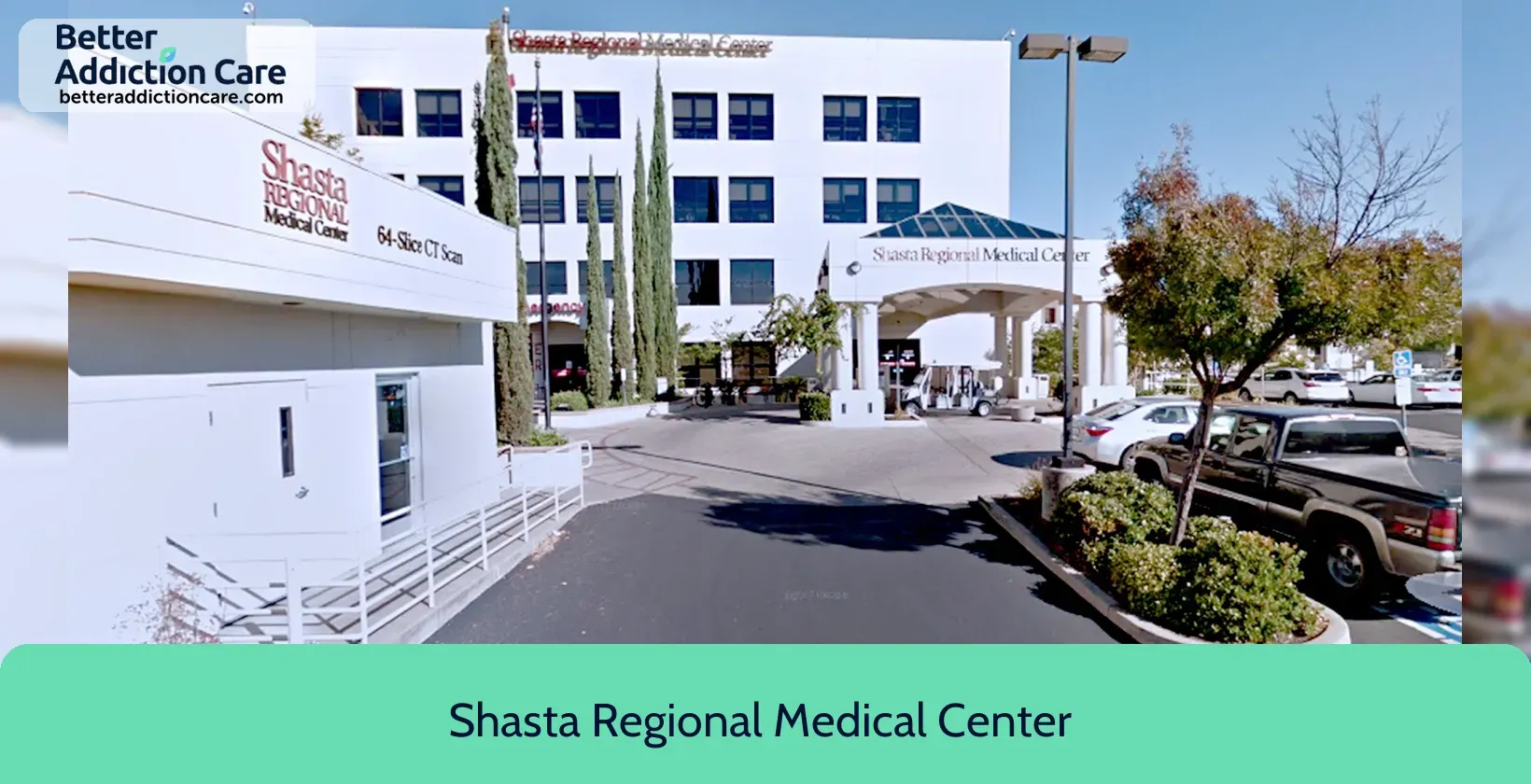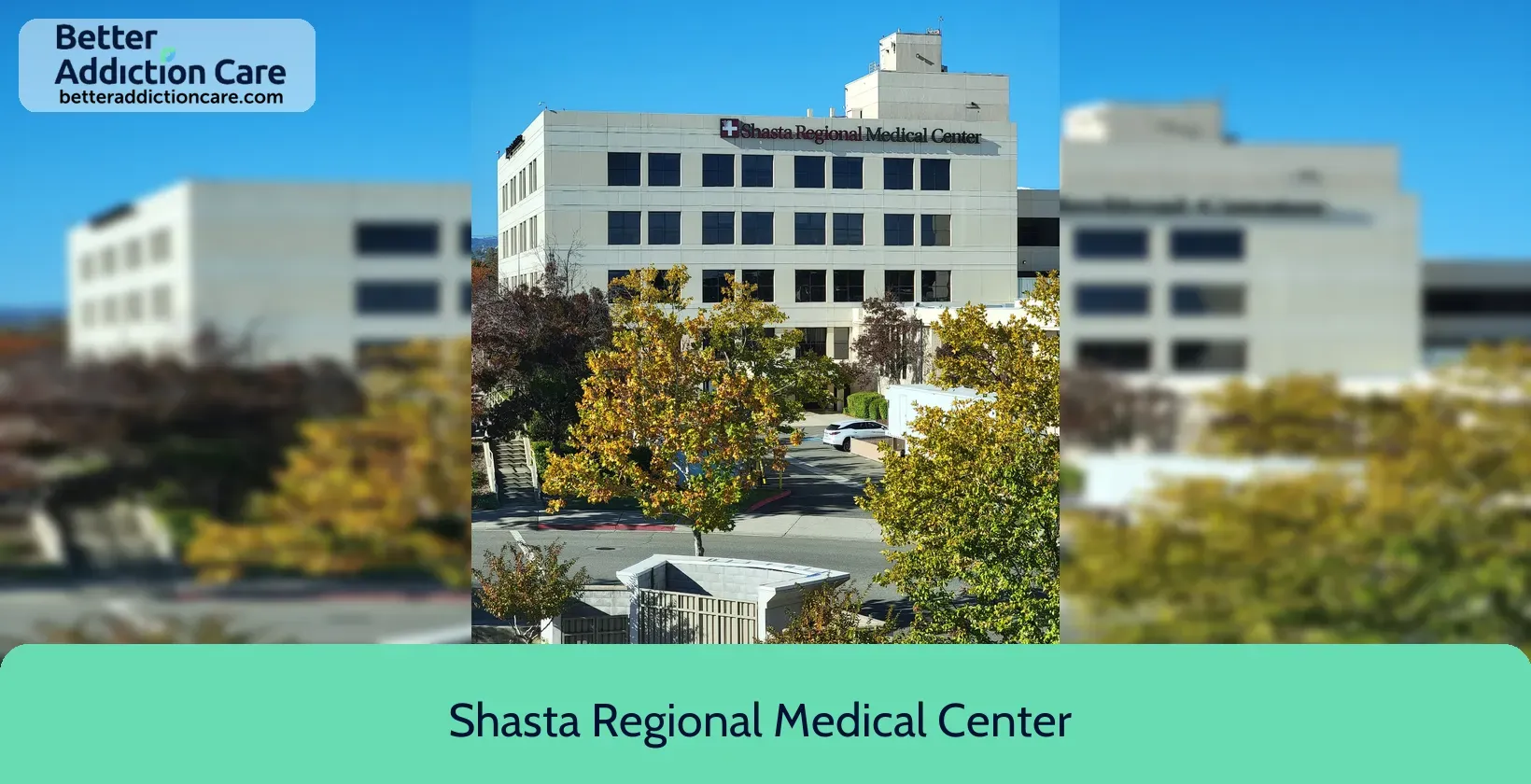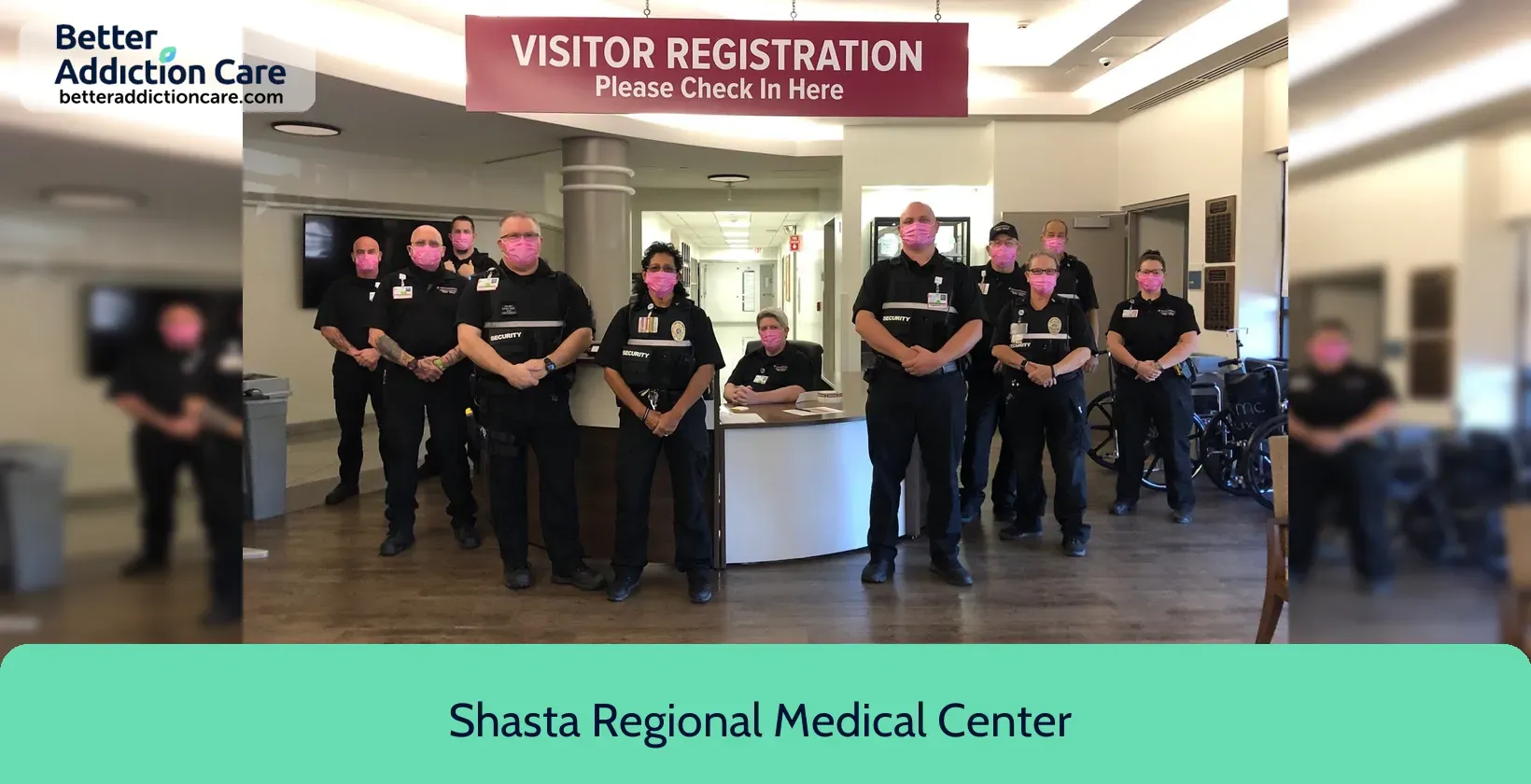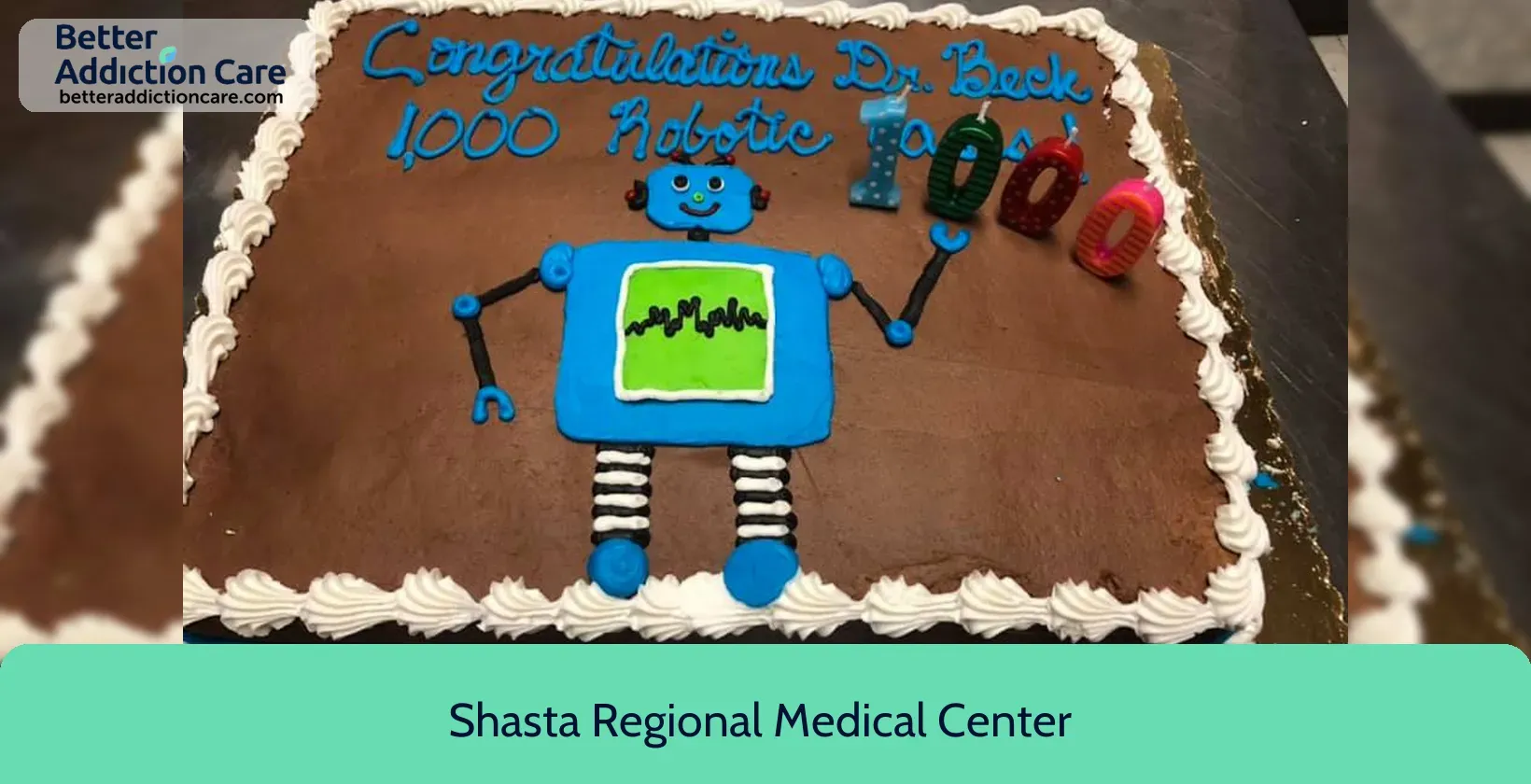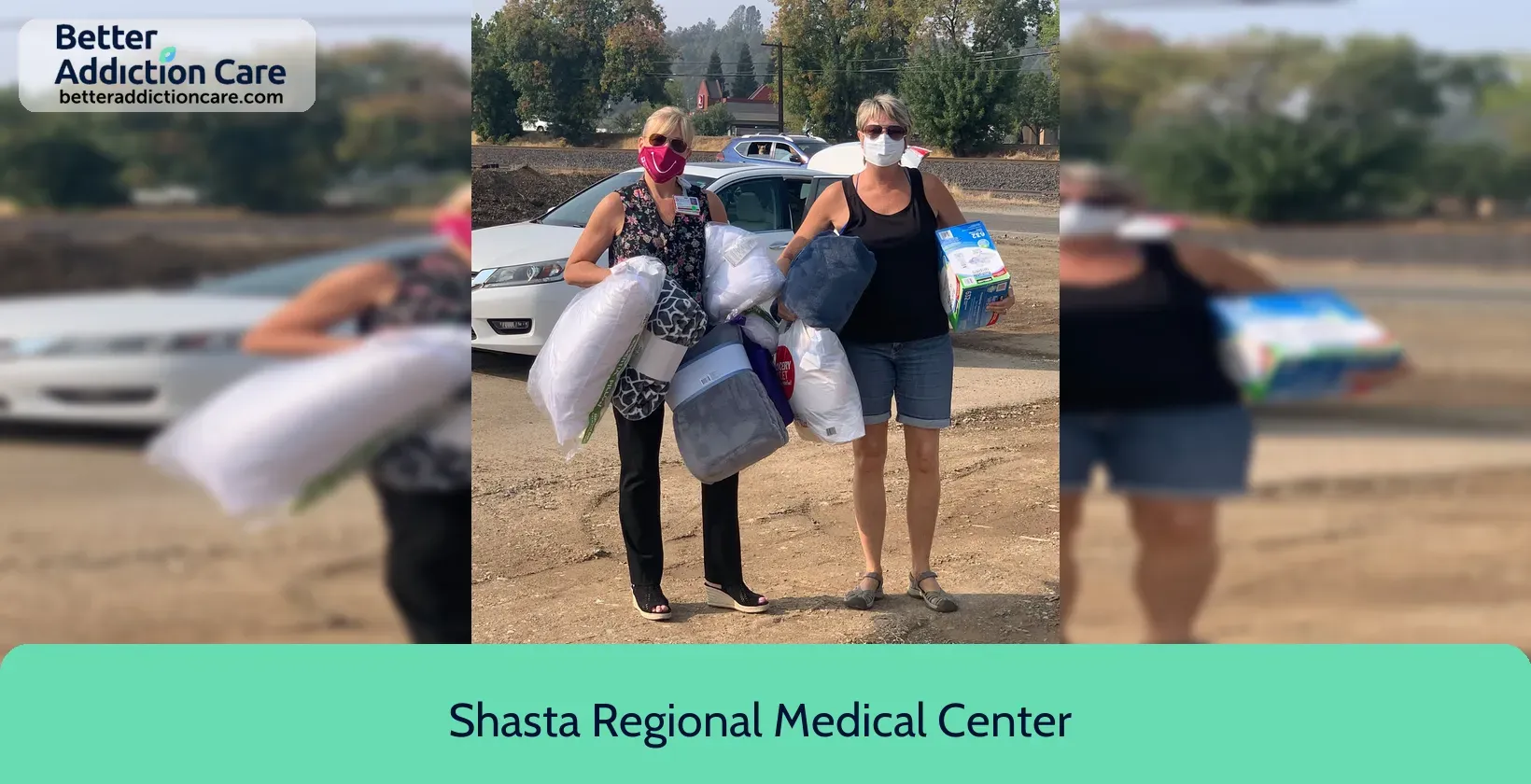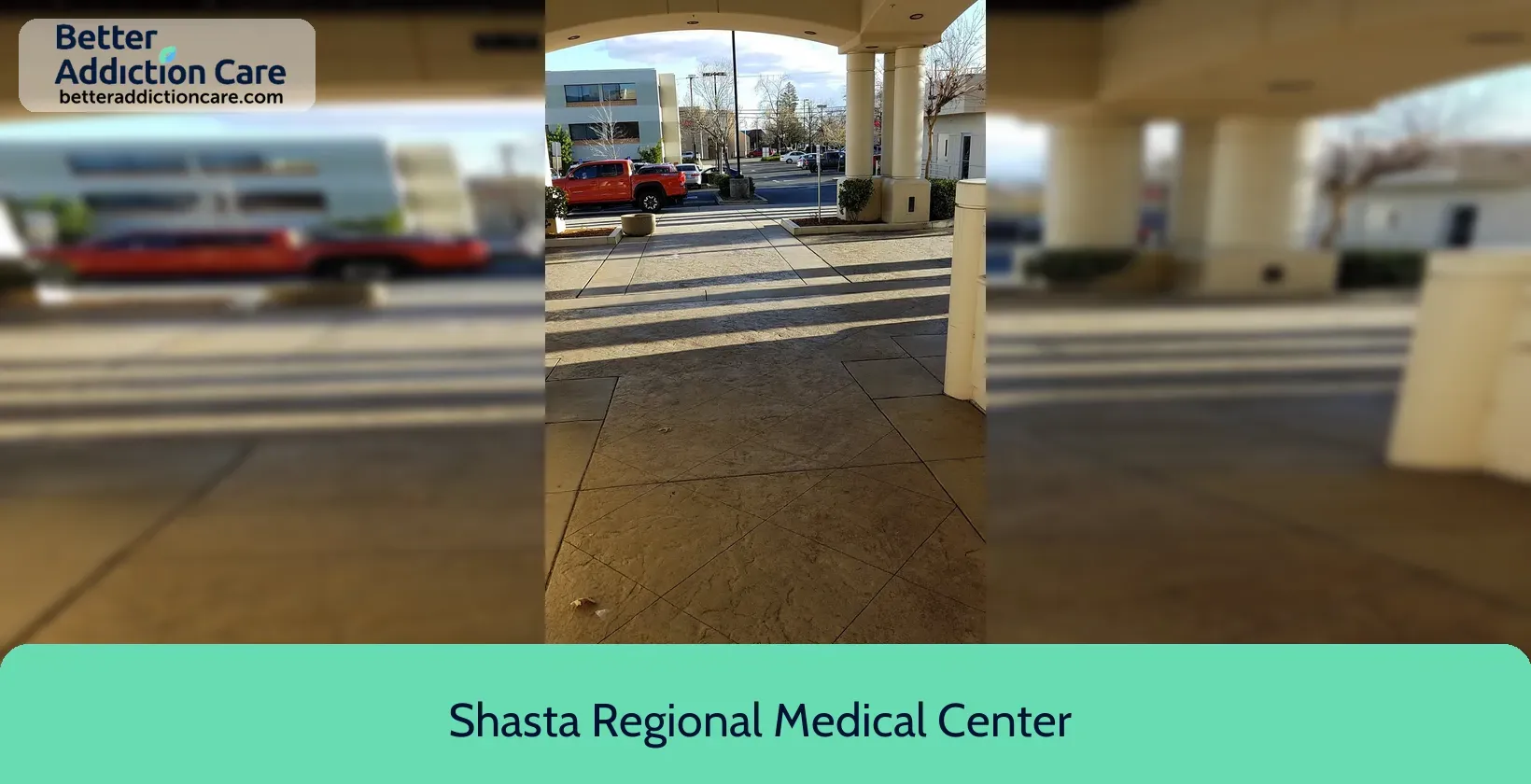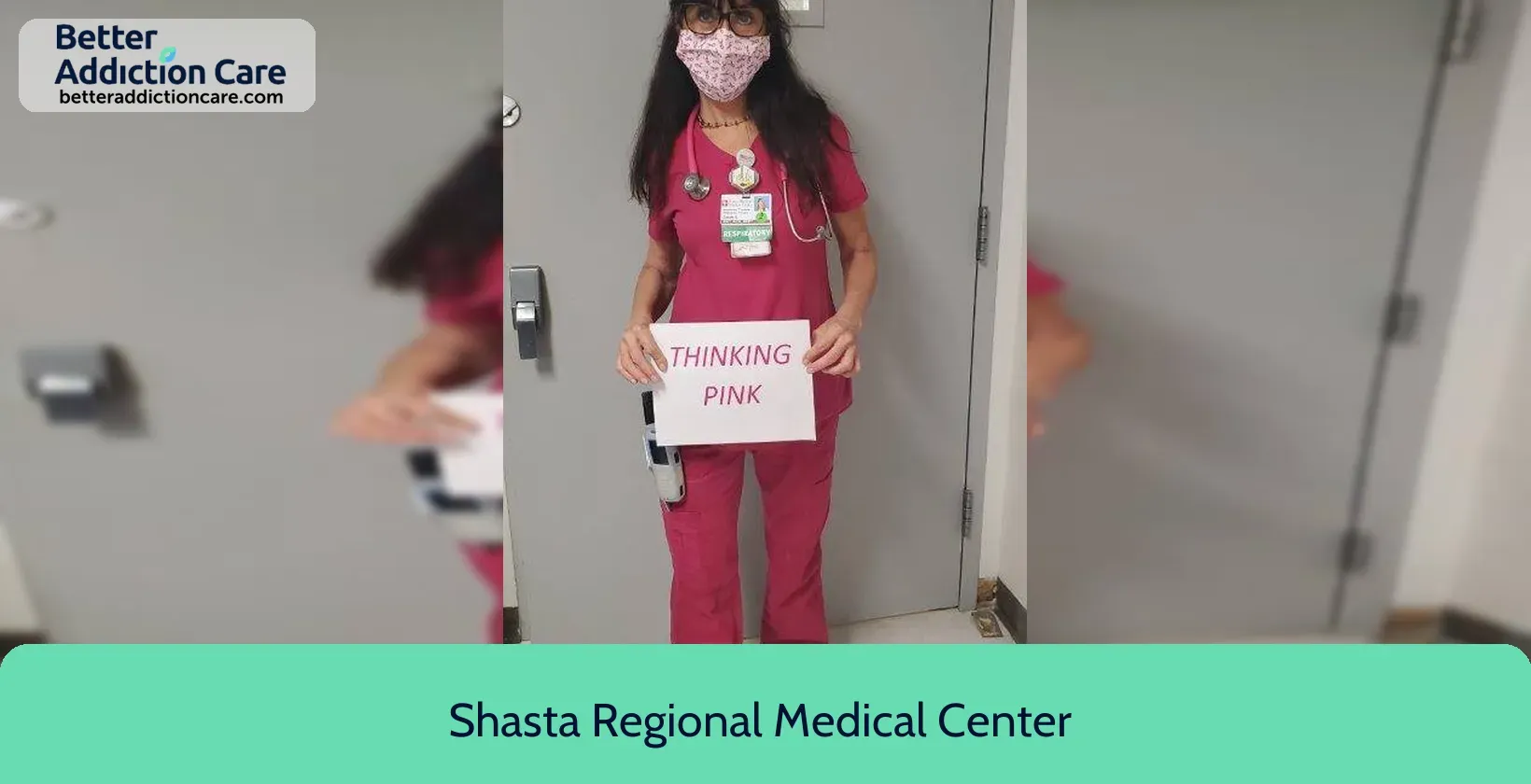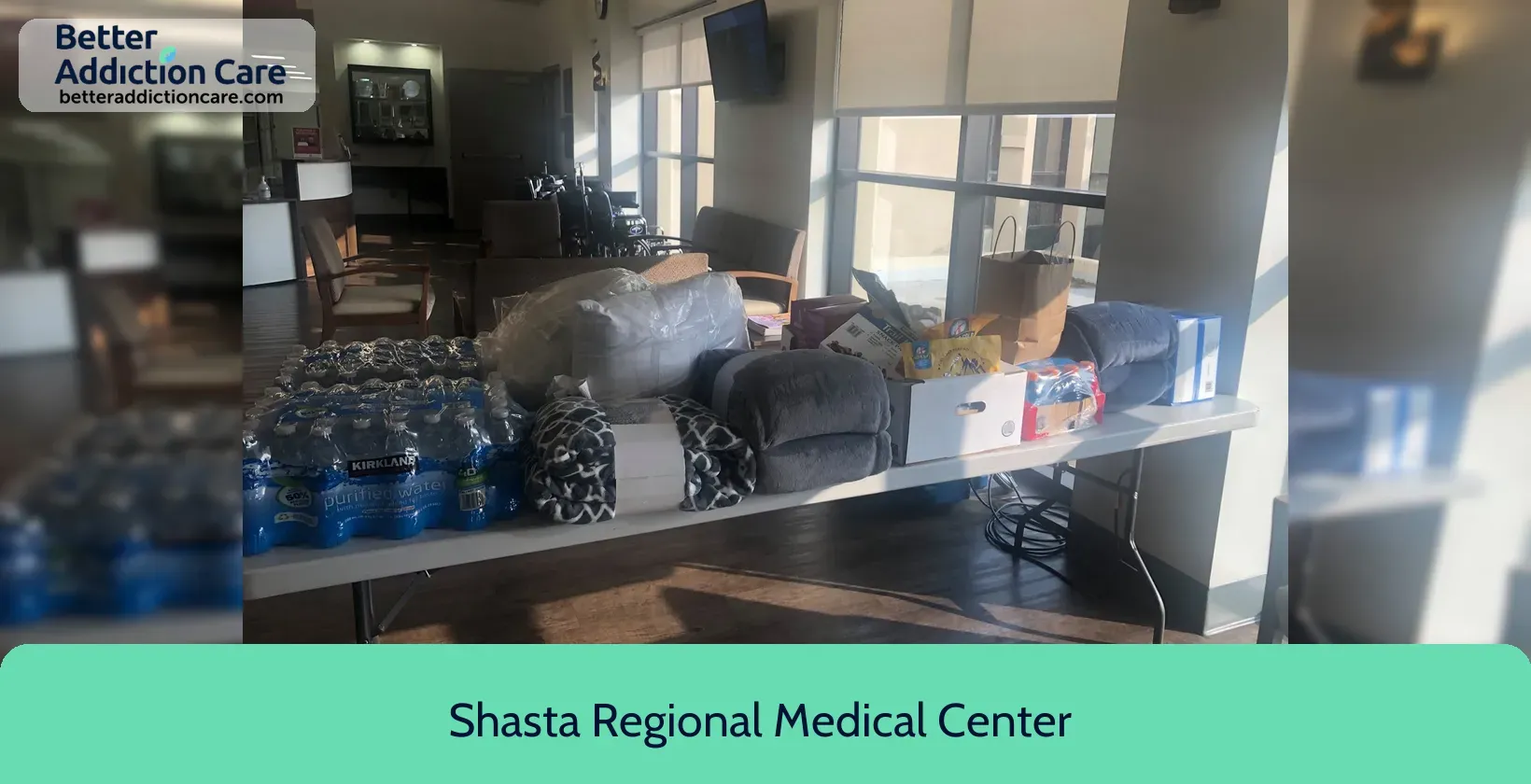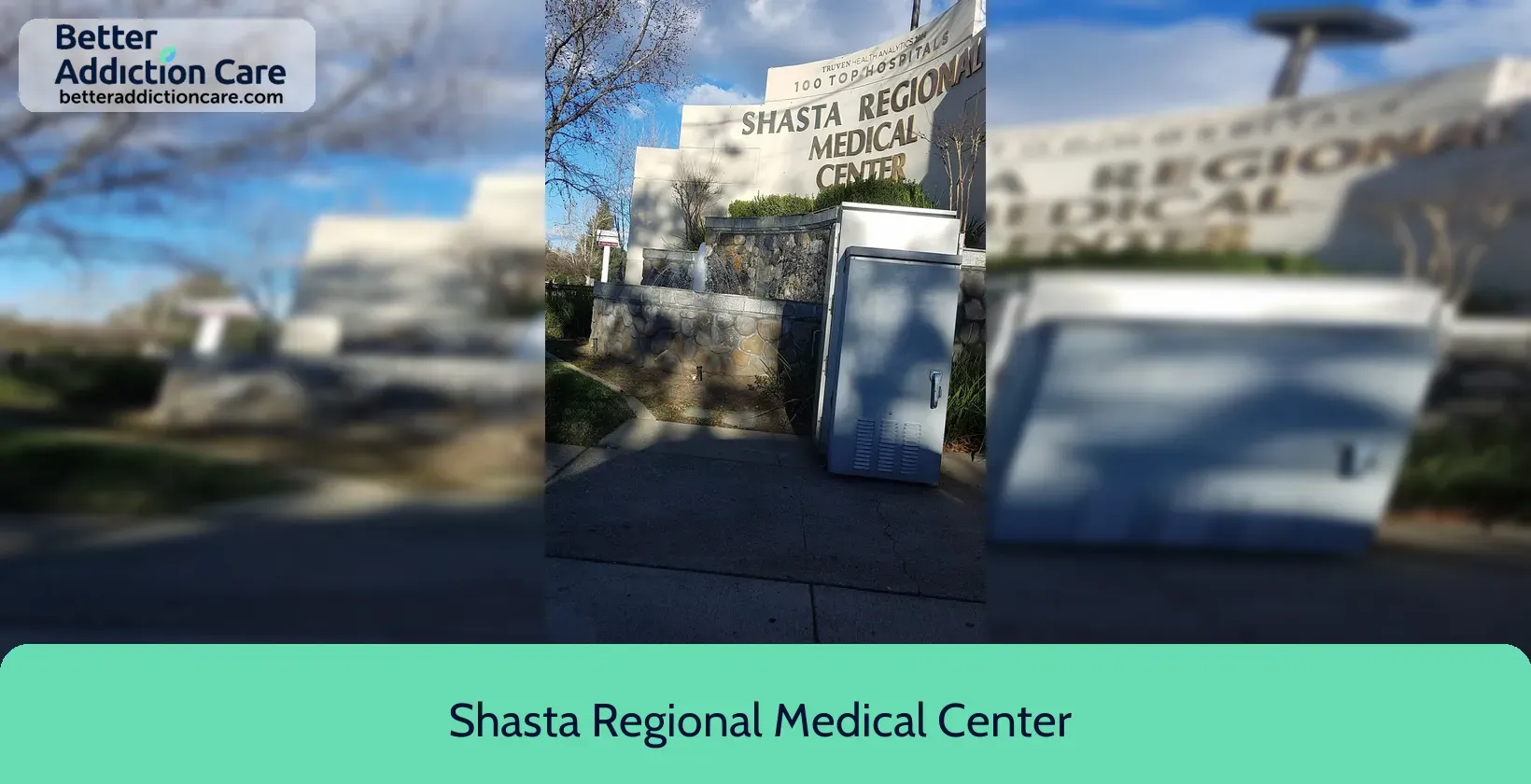Shasta Regional Medical Center - Center for Behavioral Health
Overview
Shasta Regional Medical Center - Center for Behavioral Health is a mental health treatment center for people seeking treatment near Shasta County. As part of their treatment modalities for recovery, Shasta Regional Medical Center - Center for Behavioral Health provides group counseling, cognitive behavioral therapy, and dialectical behavior therapy during treatment. Shasta Regional Medical Center - Center for Behavioral Health is located in Redding, California, accepting medicaid for treatment.
Shasta Regional Medical Center - Center for Behavioral Health at a Glance
Payment Options
- Medicaid
- Medicare
- State-financed health insurance plan other than Medicaid
- Private health insurance
- Federal military insurance (e.g., TRICARE)
Assessments
- Screening for tobacco use
- Comprehensive mental health assessment
- Comprehensive substance use assessment
Age Groups
- Young adults
- Adults
- Seniors
Ancillary Services
- Case management service
- Chronic disease/illness management
- Court-ordered outpatient treatment
- Diet and exercise counseling
- Family psychoeducation
Highlights About Shasta Regional Medical Center - Center for Behavioral Health
6.65/10
With an overall rating of 6.65/10, this facility has following balanced range of services. Alcohol Rehabilitation: 8.00/10, Drug Rehab and Detox: 6.00/10, Insurance and Payments: 6.00/10, Treatment Options: 6.61/10.-
Alcohol Rehabilitation 8.00
-
Treatment Options 6.61
-
Drug Rehab and Detox 6.00
-
Insurance and Payments 6.00
Treatment At Shasta Regional Medical Center - Center for Behavioral Health
Treatment Conditions
- Mental health treatment
- Substance use treatment
- Co-occurring Disorders
Care Levels
- Hospital inpatient/24-hour hospital inpatient
Treatment Modalities
- Group counseling
- Cognitive behavioral therapy
- Dialectical behavior therapy
- Integrated Mental and Substance Use Disorder treatment
- Activity therapy
Ancillary Services
Languages
- Sign language services for the deaf and hard of hearing
Special Programs
- Clients with co-occurring mental and substance use disorders
- Veterans
- Criminal justice (other than DUI/DWI)/Forensic clients
- Persons 18 and older with serious mental illness (SMI)
- Persons with post-traumatic stress disorder (PTSD)
Get Help Now
Common Questions About Shasta Regional Medical Center - Center for Behavioral Health
Contact Information
Other Facilities in Redding

6.71

6.68

6.71

7.09
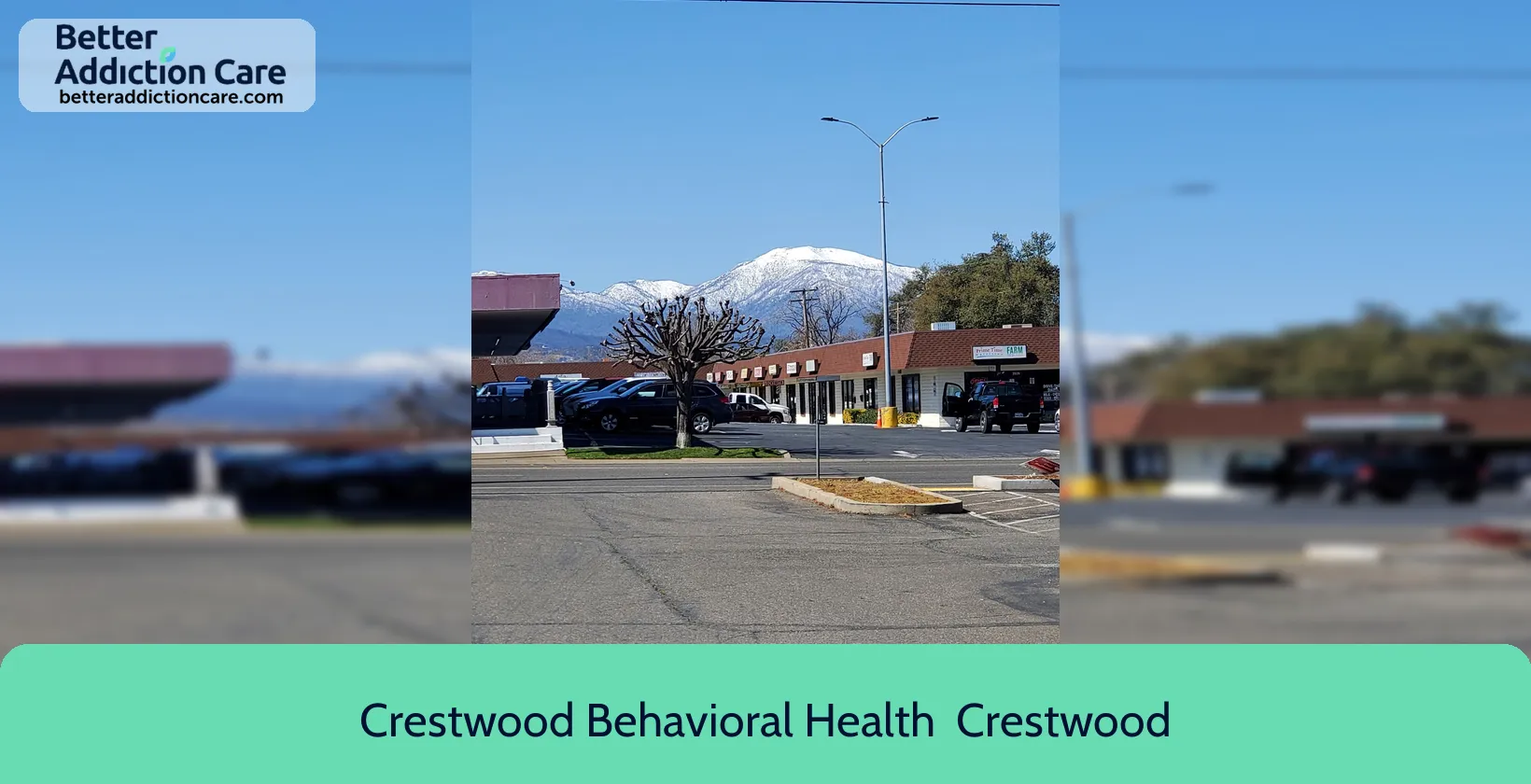
6.65
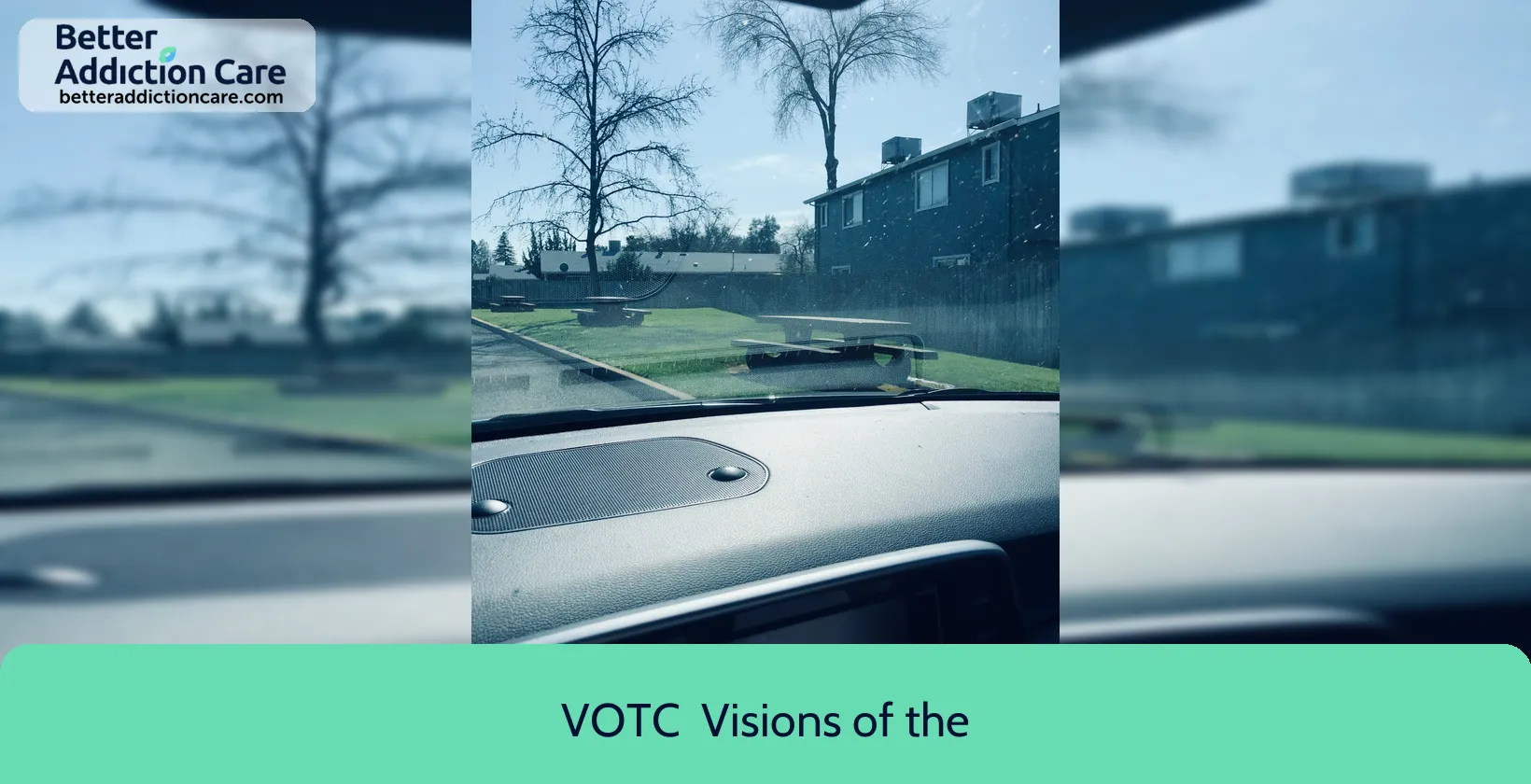
6.71

6.65

6.78
DISCLAIMER: The facility name, logo and brand are the property and registered trademarks of Groups Recover Together, and are being used for identification and informational purposes only. Use of these names, logos and brands shall not imply endorsement. BetterAddictionCare.com is not affiliated with or sponsored by Groups Recover Together.
